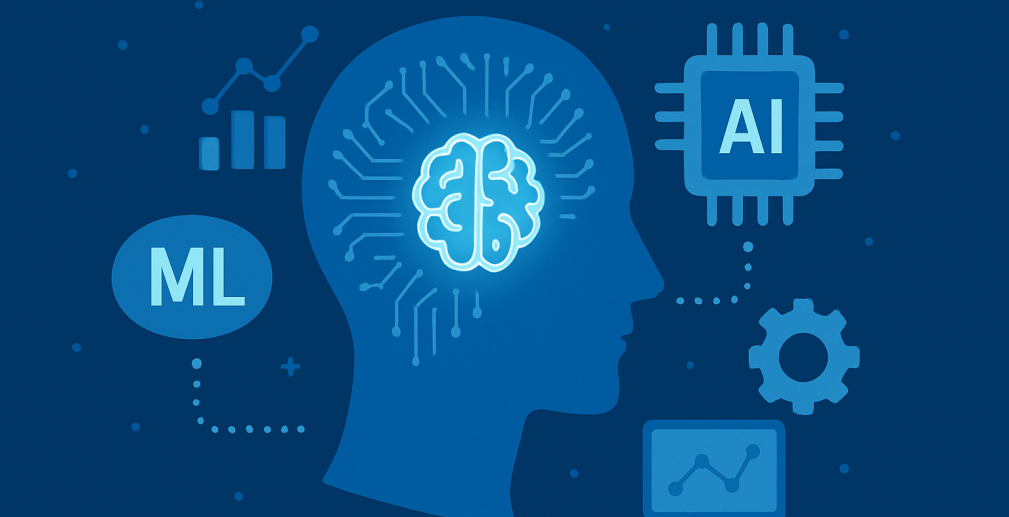Feb 11, 2025 .
By admin
The Future of Mobile App Development: Emerging Trends You Need to Know
Introduction:
The world of mobile app development is constantly evolving. What was innovative just a few years ago can
become obsolete in the fast-paced world of technology. To stay ahead of the competition and ensure your app meets the growing demands of users, it’s essential to keep up with emerging trends in mobile app
development. In this blog, we’ll take a look at the latest trends shaping the future of mobile app
development and how businesses can leverage them to create cutting-edge, user-friendly applications.
The Rise of 5G: Enhancing App Performance and User Experience
Overview:
With the rollout of 5G technology across the globe, mobile app developers are gaining access to faster
speeds and lower latency. This opens up new possibilities for creating more sophisticated apps with
real-time functionality, such as high-definition streaming, augmented reality (AR), and real-time
communication.
- Improved Speed and Efficiency: The low latency and increased bandwidth provided by 5G means apps can perform faster and more efficiently, enhancing the overall user experience.
- New Use Cases: 5G will enable apps that rely on real-time data processing, such as autonomous driving apps, AR/VR, and IoT-powered applications, to work more seamlessly.
Why it matters:
The arrival of 5G means businesses will be able to create richer, more immersive mobile app experiences,
leading to higher user engagement and satisfaction. Incorporating 5G capabilities into your app will allow
you to future-proof your mobile solutions and provide a competitive edge.
Artificial Intelligence (AI) and Machine Learning Integration
Overview:
AI and machine learning are revolutionizing mobile app development. By leveraging AI, apps can enhance
user experiences, provide personalized recommendations, and automate repetitive tasks. From intelligent
voice assistants to AI-driven chatbots, these technologies are already a key part of many popular apps.
- Personalization at Scale: AI can help tailor the user experience by analyzing user behavior, preferences, and patterns to offer personalized content and services.
- Predictive Analytics: With machine learning, apps can predict user needs and suggest actions or products, increasing user retention and engagement.
Why it matters:
Integrating AI and machine learning into your app can elevate its functionality and provide users with more dynamic, personalized experiences. By using data-driven insights, businesses can improve customer
satisfaction and drive growth.

Augmented Reality (AR) and Virtual Reality (VR)
Overview:
Augmented reality (AR) and virtual reality (VR) are no longer just for gaming. These immersive
technologies are finding applications in sectors like retail, healthcare, education, and real estate. Whether
it’s virtual try-ons for fashion, immersive shopping experiences, or virtual tours, AR/VR is transforming how
users interact with mobile apps.
- Enhanced User Engagement: AR and VR offer a more immersive and engaging experience, providing users with unique ways to interact with content.
- Increased Sales and Conversion: Retailers are increasingly using AR to allow customers to visualize products before making a purchase, improving conversion rates.
Why it matters:
AR and VR are setting new expectations for mobile app experiences. By incorporating these technologies
into your app, you can captivate users with innovative and engaging features, setting your app apart from
the competition.
Internet of Things (IoT) Integration
Overview:
The Internet of Things (IoT) is growing rapidly, and its integration with mobile apps is becoming a key trend
in app development. IoT-enabled devices, from smart home appliances to wearable tech, require mobile
apps to manage and control them. Integrating IoT capabilities allows users to connect and control their
devices through mobile apps, offering convenience and efficiency.
- Remote Control and Automation: IoT-enabled mobile apps allow users to control devices remotely, automate processes, and monitor real-time data.
- Real-Time Data Insights: IoT devices generate valuable data that can be used to optimize processes, enhance decision-making, and improve the user experience.
Why it matters:
As IoT devices become more prevalent, businesses that incorporate IoT into their mobile apps can offer
users a seamless experience across multiple connected devices, enhancing customer satisfaction and
enabling new features for their apps.


Blockchain Technology in Mobile Apps
Overview:
Blockchain technology is best known for powering cryptocurrencies like Bitcoin, but its potential extends far
beyond that. Blockchain can be used in mobile apps to enhance security, enable decentralized
transactions, and provide transparency. Blockchain-powered apps can be particularly valuable in industries
like finance, healthcare, and supply chain management.
- Enhanced Security: Blockchain offers a secure and transparent way to store and share data, reducing the risk of fraud and ensuring data integrity.
- Decentralized Apps (DApps): Blockchain allows for the creation of decentralized apps that operate on a peer-to-peer network, offering users more control over their data and transactions.
Why it matters:
Blockchain integration can enhance trust and security, which is crucial in sectors dealing with sensitive
data or financial transactions. By incorporating blockchain into your app, you can offer innovative features
that meet the growing demand for transparency and security.
Cross-Platform Development: Write Once, Deploy Everywhere
Overview:
Cross-platform development continues to rise in popularity, thanks to frameworks like React Native, Flutter,
and Xamarin. These frameworks allow developers to write a single codebase that can run on both iOS and
Android platforms, reducing development costs and time-to-market.
- Faster Time to Market: Cross-platform frameworks allow businesses to release their app on both major platforms simultaneously, improving speed to market.
- Cost-Effective Development: With a shared codebase, businesses save time and money on development and maintenance.
Why it matters:
As more businesses look to launch mobile apps on both iOS and Android, cross-platform development
offers an efficient, cost-effective solution without compromising quality. By adopting cross-platform
technologies, businesses can maximize their reach and ensure consistent user experiences across
platforms.
Hyper-Personalization Through Advanced Analytics and AI
Overview:
Personalization is no longer a luxury, but a necessity. Today’s mobile apps are leveraging advanced
analytics and artificial intelligence (AI) to offer hyper-personalized user experiences. By analyzing vast
amounts of data, AI can predict user behaviors, preferences, and even anticipate needs before they arise.
- Data-Driven Experiences: AI-powered algorithms use data collected from users to customize content, services, and recommendations, providing a tailored experience.
- Dynamic Interactions: Apps are evolving to be more intuitive, engaging, and responsive based on user behavior, improving user retention and engagement.
Why it matters:
As user expectations become more sophisticated, delivering an app that feels personalized and relevant is
essential to staying ahead. AI-driven personalization will not only enhance user satisfaction but also
optimize user journeys for better retention and business outcomes.
Voice-Activated Mobile Apps
Overview:
Voice-enabled apps have seen a rise with the increasing use of smart speakers, voice assistants, and IoT
devices. Integrating voice functionality into your mobile app will provide users with hands-free interactions,
enhancing convenience and accessibility.
- Voice Search and Commands: Users can search for information or give commands without typing, creating a more seamless and intuitive experience.
- Accessibility Features: Voice-enabled apps make mobile services more accessible to individuals with disabilities, expanding your app’s usability to a wider audience.
Why it matters:
Voice-enabled features are no longer just a novelty but a necessity for enhancing user experience. As
voice recognition technology improves, integrating voice functionality into mobile apps will become
essential for businesses that aim to provide frictionless user experiences.
Sustainability in Mobile App Development
Overview:
Sustainability is becoming a key factor in mobile app development. Consumers and businesses alike are
recognizing the need to reduce their environmental footprint. This includes adopting green computing
practices, optimizing apps for energy efficiency, and minimizing data storage needs.
- Energy-Efficient Design: Reducing the energy consumption of mobile apps can have a positive impact on both users and the environment.
- Eco-Friendly Data Management: By using efficient data storage and management techniques, businesses can reduce their carbon footprint while ensuring optimal app performance.
Why it matters:
Sustainability is no longer just a buzzword; it’s a responsibility. Mobile apps that integrate energy-efficient
features will attract environmentally-conscious consumers and businesses, positioning your brand as one
that cares about the planet.
Conclusion: Stay Ahead with Mobile App Development Trends
The future of mobile app development is rich with exciting innovations that are reshaping the way
businesses interact with customers. From 5G connectivity to AI and blockchain, these emerging
technologies are driving the next generation of mobile apps. By staying on top of these trends, businesses
can deliver exceptional, user-friendly mobile experiences that meet evolving customer expectations.
Ready to Build the Next Big App?
At Sakrat, we specialize in developing innovative, scalable, and high-performance mobile apps
that align with the latest trends. Whether you’re looking to integrate AI, develop an IoT-enabled app, or take
advantage of 5G, our team has the expertise to bring your app vision to life. Contact us today to get started
on your mobile app development journey!
